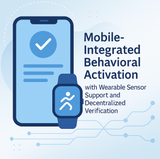Navigating the Future: Healthcare Industry Trends in 2025
-
Diagnostics and Predictive Analytics: AI is revolutionizing how diseases are diagnosed, with algorithms now aiding in the interpretation of medical imaging, predicting patient outcomes, and even suggesting personalized treatment plans. The integration of AI into diagnostics is becoming more prevalent, promising faster, more accurate health assessments.
-
Administrative Efficiency: AI tools are also streamlining administrative tasks, reducing the burden on healthcare staff, and improving patient care by freeing up time for direct patient interaction. From patient scheduling to claim processing, AI is making operations smoother.
-
Expanding Access: Telehealth has transitioned from a temporary solution during pandemics to a permanent fixture in healthcare delivery. By 2025, it's not just about consultations; specialties like mental health, chronic disease management, and even some forms of physical therapy are routinely handled remotely.
-
Technological Enhancements: Advances in technology mean that high-definition video, AI, and IoT devices are enhancing the telehealth experience, making remote monitoring of patients more effective than ever.
-
Genomic Insights: With the cost of genomic sequencing dropping significantly, personalized medicine is on the rise. Treatments are now tailored to individual genetic profiles, which can lead to better outcomes and fewer side effects.
-
Precision in Treatment: This trend also extends to pharmaceuticals, where drugs are being developed to target specific genetic markers, promising more effective treatments for diseases like cancer and cardiovascular issues.
-
Rising Threats: As healthcare becomes more digital, so does the risk of cyber-attacks. Protecting patient data has never been more critical, with healthcare organizations investing heavily in cybersecurity measures to safeguard sensitive information.
-
Regulatory Pressures: With new regulations and potential shifts in policy under the current administration, healthcare providers are under scrutiny to ensure data integrity and privacy.
-
Inflation and Costs: The healthcare sector is facing one of the highest inflation rates in years, driven by factors like labor costs, drug prices, and the demand for specialized care. This trend is pushing the industry towards more cost-effective solutions.
-
Value-Based Care: There's a growing shift towards value-based care models where payment is tied to health outcomes rather than services rendered, encouraging efficiency and quality in treatment.
-
Digital Therapeutics: The focus on mental health has led to an increase in digital solutions like apps for therapy, mood tracking, and virtual reality treatments for conditions like PTSD or anxiety.
-
Integration with Physical Health: There's a holistic approach now, recognizing the link between mental and physical health, leading to more integrated care services.
-
Secure Data Sharing: Blockchain technology is being explored for its potential to secure patient data, manage consent, and ensure data interoperability across different healthcare systems.
-
Transparency in Supply Chain: It's also finding use in the supply chain of pharmaceuticals to verify the authenticity and track the journey of drugs from manufacturer to patient.
-
Skill Gap: The healthcare sector is grappling with a workforce shortage, particularly in roles that require new tech skills. There's a push for reskilling and partnerships with tech industries to bridge this gap.
-
Remote Work in Healthcare: The concept of remote work has expanded to include roles like remote nursing or telemedicine, reshaping traditional healthcare career paths.
Truway Health News & Insights
Consistency Over Intensity: How to Make Wellness Stick
Consistency Over Intensity: How to Make Wellness Stick Wellness and self-care goals often start with...
Mobile‑Integrated Behavioral Activation With Wearable Sensor Support and Decentralized Verification: Protocol for a Randomized Behavioral Trial
Abstract Background: Behavioral activation delivered through mobile platforms has shown promise for...
When Your Body Won’t Settle Down Everyday Habits That Calm Inflammation
When Your Body Won’t Settle Down: Everyday Habits That Calm Inflammation Inflammation is a normal bi...
Truway Health Launches Innovative In-Vitro Cryo-Therapeutic Clinical Study
Advancing Cellular Preservation, Precision Therapy, and Translational Science Truway Health, Inc. is...
Everyday Stress, Handled: Practical Ways to Feel More Steady Day to Day
Everyday Stress, Handled: Practical Ways to Feel More Steady Day to Day Everyday stress is the mind-...
Creating Your Personalized Health Roadmap: Break Bad Habits and Build Long-Term Well-Being
Creating Your Personalized Health Roadmap: Break Bad Habits and Build Long-Term Well-Being Improving...







